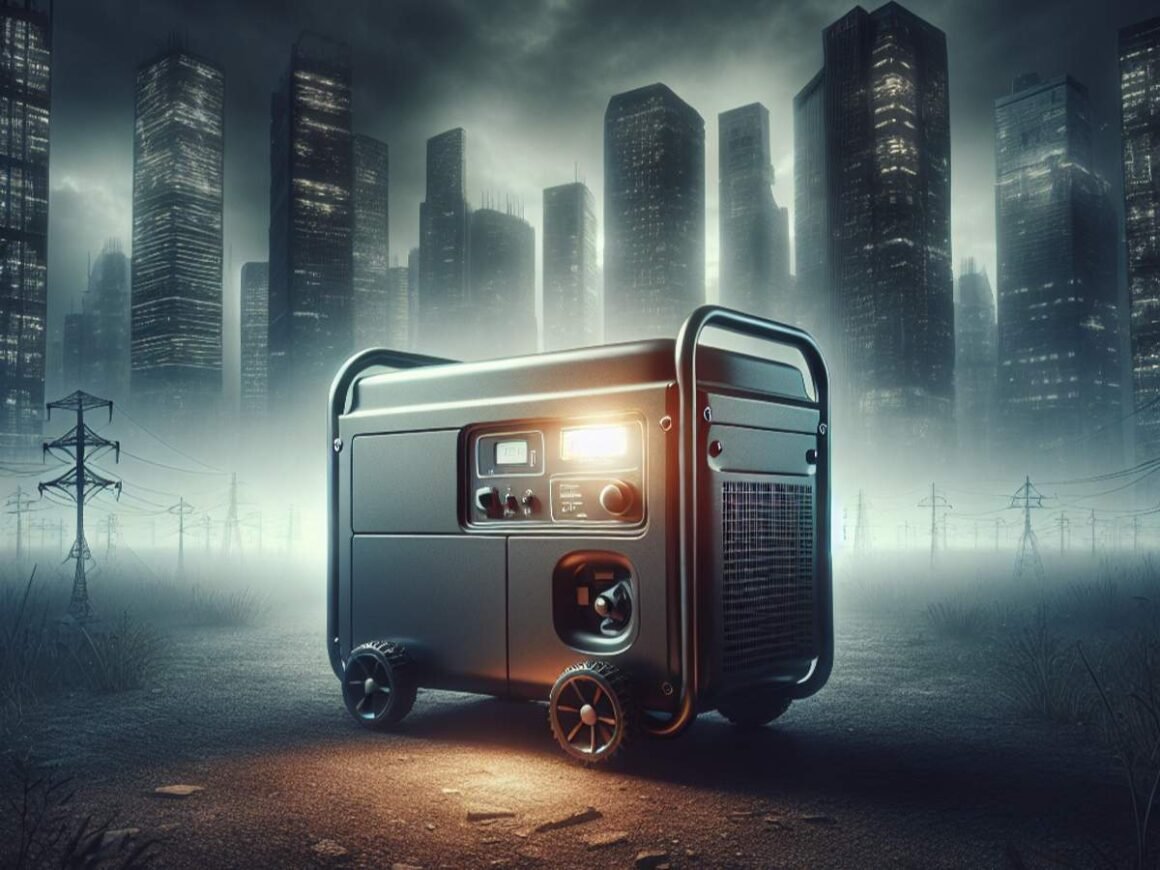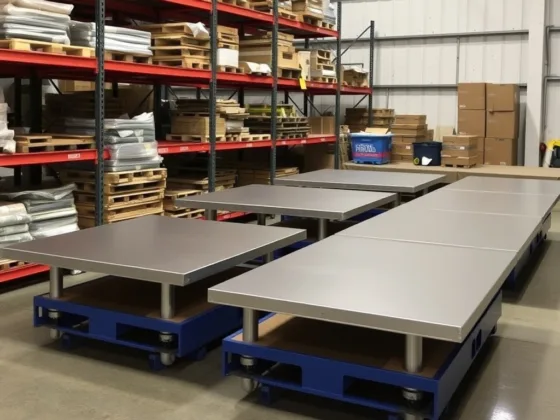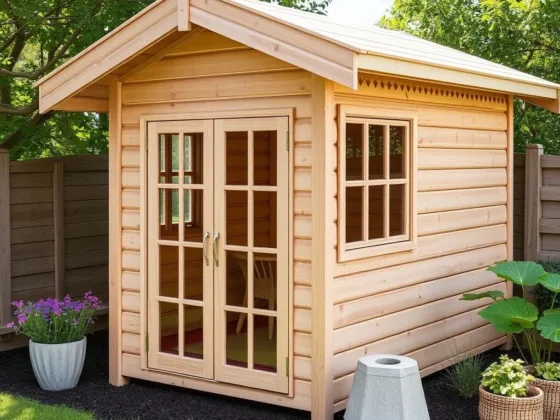Table of Contents Show
Ideal backup power options like home generators are going to have your back when the electricity grid fails. Keeping the lights on during an outage is now possible, and you don’t have to experience the inconvenience of having no lights.
An increase in natural disasters with an aging power grid is usually a recipe for disaster, and having some form of energy when the lights go out for those who have special medical needs will keep everything flowing.
However, you wouldn’t want to overspend with this power, and you should avoid the models that are not enough to deliver what you need. Fortunately, there’s a buying guide that can help you make wiser decisions.
Selecting the Right Type
Choosing the right generator for your needs involves understanding the different types available and their specific benefits. Here’s a detailed look at some common types of generators:
1. Standby
Count on standby generators to automatically turn on when electricity from the grid stops. This is a generator for a house designed to power an entire home, including your HVAC system, lights, and essential appliances. This ensures you don’t experience any downtime during power outages.
Advantages:
- Automatic Operation: No need to manually start the generator.
- High Power Output: Can run multiple household appliances simultaneously.
- Reliability: Essential for areas prone to frequent storms and natural disasters.
Considerations:
- Cost: Higher initial investment compared to other types.
- Maintenance: Requires annual maintenance by professionals.
Standby generators are ideal for maintaining normalcy during extended blackouts, preventing food spoilage, and ensuring continuous operation of critical home systems.
2. Portable
Portable generators offer flexibility due to their smaller size and ease of transport. They are perfect for outdoor activities such as camping trips and can be conveniently stored in your car.
Advantages:
- Portability: Easy to move and store.
- Cost-Effective: Generally more affordable than standby generators.
Considerations:
- Limited Power Output: Not suitable for powering an entire house or heavy-duty construction equipment.
- Manual Operation: Requires manual startup and monitoring.
When you need to charge devices or power small electronics while being away from home, portable generators are a practical, budget-friendly choice.
3. Inverter
Inverter generators deliver clean energy with stable output, making them ideal for sensitive electronics like phones and laptops. They are known for being fuel-efficient and quieter during operation.
Advantages:
- Clean Energy Output: Safe for sensitive electronic devices.
- Fuel Efficiency: Consumes less fuel compared to traditional generators.
- Quiet Operation: Produces less noise, suitable for residential use.
Considerations:
- Cost Variability: Prices vary based on size and features.
- Maintenance Needs: Maintenance requirements can differ based on usage.
Mid-sized inverter generators are versatile enough for RV or boat trips, providing reliable power without disturbing the peace with noise pollution.
4. Induction
Induction generators work by creating electromagnetic fields that turn rotors at various speeds, converting mechanical energy into electrical energy. They are commonly used in mini hydro plants and wind turbines due to their efficiency at different speeds.
Advantages:
- Versatility in Speed: Can produce power efficiently at varying speeds.
- Low Maintenance: Generally easier to maintain compared to other types.
Considerations:
- Unstable Wattage Output: This may not provide consistent power levels required for home use.
Smaller induction generators are often favored for specific applications like renewable energy setups but may not be the best choice for consistent home power needs due to potential fluctuations in output wattage.
For more technical details about induction types, you can read further on this page here.
Home Generator Buying Guide
One of the first questions that you should ask before you choose a generator is, “What do you need it for?” Depending on the appliances that you want to operate, you might find that the standby types are already more than enough to power the majority of your home essentials.
Power Requirements
Larger types will take more fuel, weigh more, and burn a lot of fuel. Calculate everything because different appliances have varying power needs:
- Desktop Computers: Require around 200 watts.
- Dryers: Can range from 2,000 to 6,000 watts.
- Water Heaters: Consume approximately 5,000 watts.
- Oven Toasters: Typically use about 1,200 watts.
Fuel Types
Choosing the right fuel type for your generator is crucial. Here are some common options:
- Propane: A clean fuel source that can be connected to a tank. It’s often preferred for its cleanliness and ease of storage.
- Diesel: Popular in industrial settings, diesel is less of a fire hazard compared to gasoline. It offers efficiency and a longer shelf life.
- Natural Gas: Ideal for standby generators. Natural gas systems are self-feeding and provide a limitless source of fuel. However, they may not be as efficient as other fuel types. For more information about natural gas, check out this National Geographic resource.
Other Considerations
When selecting a generator, consider these additional factors:
- Fuel Efficiency: Larger generators consume more fuel. Balance your power needs with fuel efficiency to avoid unnecessary costs.
- Weight and Portability: If mobility is important, consider smaller generators that are easier to move.
- Safety Features: Look for features like automatic shut-offs to prevent hazards such as carbon monoxide build-up.
By understanding your specific needs and the various options available, you’ll be better equipped to choose a generator that fits your lifestyle and ensures an uninterrupted power supply for your home essentials.
The Budget that Should Be Allocated
Price points should matter, and this is where you need to consult the professionals for help. They are going to give you ballpark estimates of the costs of the unit itself, as well as the installation.
Factors Influencing Costs
Several factors can influence the overall cost of your generator system:
- Unit Type: The type of generator (portable vs. standby) significantly impacts the price.
- Power Output: Generators are rated by their power output in kilowatts (kW). Higher power outputs usually come at higher prices.
- Brand and Model: Reputable brands may charge more due to their reliability and advanced features.
AC and DC Options
Generators can provide either Alternating Current (AC) or Direct Current (DC):
- AC Generators: Commonly used in households, they are well-suited for powering home appliances and electronics.
- DC Generators: Often used for backup units or battery banks, they can be crucial for specific applications such as solar power storage systems.
Additional Features
Certain features can add to the overall cost but provide significant benefits:
- Automatic Shut-offs: These safety features can increase the price but are essential. If the unit detects excessive carbon monoxide levels, it will automatically shut off to prevent hazards.
- Electric Start Features: Instead of using a traditional pull cord, you can opt for a generator with an electric start. This feature allows you to start the unit with a push button or remote control, adding convenience and ease of use.
Installation Costs
Don’t overlook installation costs, which can vary based on several factors:
- Complexity of Setup: More complex installations may require additional wiring or modifications to your home’s electrical system.
- Professional Fees: Labor costs for licensed electricians or installers can also add up.
By understanding these factors and consulting with professionals, you’ll be better positioned to allocate your budget effectively. This will help ensure you choose a generator that meets your needs without overspending.
Fuel Types
Gasoline, diesel, propane, or natural gas are typical choices for electric generators. Each fuel type has its own set of advantages and disadvantages, making them suitable for different applications.
- Gasoline: Commonly used in portable generators due to its widespread availability. Gasoline engines are generally easy to start but may require more frequent maintenance.
- Diesel: Preferred for commercial generators because of its efficiency and longevity. Diesel engines typically have a longer lifespan and can run for extended periods without refueling.
- Propane: Often used in both portable and standby generators. Propane burns cleaner than gasoline or diesel, which can result in a longer engine life and less maintenance.
- Natural Gas: Frequently used in home standby generators. Natural gas systems are self-feeding and provide a virtually limitless source of fuel, although they may not be as efficient as diesel or propane.
For more detailed information about natural gas, visit National Geographic – Natural Gas.
Features to Consider
When selecting a generator, consider the following features to enhance functionality and safety:
- Dual Fuel Generator Features: These allow switching between gasoline and propane, offering flexibility depending on fuel availability.
- Electric Start Feature for Generators: This enables starting the generator with a push button or remote control, eliminating the need for manual pull starts.
- Low-Oil Shut-Off Feature for Generators: Automatically shuts down the engine when oil levels are low, protecting the engine from potential damage.
- GFCI Outlets for Generator Safety: Ground Fault Circuit Interrupter (GFCI) outlets provide protection against electrical shocks by shutting off power if a ground fault is detected.
- Manual Transfer Switch for Generator Safety: Ensures safe transfer of power from the generator to household circuits, preventing back-feed into the utility lines.
- Weather Safety for Generators: Includes enclosures or covers that protect the generator from harsh weather conditions, extending its lifespan and ensuring reliable operation.
Additionally, using a fuel stabilizer can prevent fuel degradation during storage, ensuring your generator runs smoothly when needed.
By understanding these features, you can select a generator that best fits your needs while ensuring safety and reliability.
How Does a Generator Work?
A generator is essentially an engine-driven device that converts mechanical energy into electrical energy, operating on the principle of electromagnetic induction discovered by Michael Faraday in the early 19th century.
Key Components
Inside a typical generator, you will find two main components: an internal combustion engine and an alternator.
Internal Combustion Engine
- Fuel Types: The engine runs on either gasoline, diesel, natural gas, or propane, depending on the type of generator you have.
- Function: Its primary function is to convert chemical energy from fuel combustion into mechanical power.
Alternator
The alternator plays a crucial role in electricity generation. It consists of coils of wire wrapped around a magnetic core made up of iron or steel laminations.
- Operation: As the engine rotates at high speeds, it drives the alternator through a shaft connecting both components.
- Electromagnetic Induction: When this happens, electromagnetic forces are produced within the alternator’s windings due to Faraday’s law of electromagnetic induction. These forces cause electrons in the wire coils to move back and forth rapidly, creating alternating current (AC) output.
AC vs. DC Electricity
Most homes use direct current (DC) electricity for everyday appliances and devices like phones and laptops that require lower voltages than what AC provides.
To address this disparity between AC generation and DC usage in households, generators employ another key component called an automatic voltage regulator.
Advanced Features
Aside from providing backup power during emergencies or blackouts, modern generators often come equipped with advanced features:
- Automatic Start/Stop Functions: Based on power loss detection.
- Remote Control: Some models can even be controlled remotely through smartphone apps for added convenience.
Operational Safety
Ensuring operational safety involves several factors:
- Carbon Monoxide Safety Features: Generators produce carbon monoxide (CO), a colorless and odorless gas that can be deadly. Modern generators often come with built-in CO detectors that automatically shut down the unit if CO levels become dangerous. Always operate your generator in a well-ventilated area to mitigate this risk.
- Manual Transfer Switch Installation: Installing a manual transfer switch is essential for safely connecting your generator to your home’s electrical system. This prevents backfeeding, which can cause serious injury to utility workers and damage to electrical equipment. Consult a licensed electrician for proper installation.
- Use of GFCI Outlets: Ground Fault Circuit Interrupter (GFCI) outlets are crucial for preventing electrical shocks. These outlets detect imbalances in the electrical current and shut off power immediately, providing an added layer of safety, especially in wet or damp conditions.
Regular Maintenance:
- Checking Oil Levels: Regularly monitor and top up the oil levels to ensure the engine runs smoothly. Low oil levels can cause severe damage and reduce the lifespan of your generator.
- Using Fuel Stabilizers: If you store fuel for extended periods, use fuel stabilizers to prevent the gasoline from breaking down and causing engine problems. Stabilizers keep the fuel fresh and ensure smooth operation when you need it most.
- Proper Weather Protection: Protecting your generator from harsh weather conditions is crucial for its longevity and safe operation. Use weatherproof covers or enclosures specifically designed for generators to shield them from rain, snow, and extreme temperatures. Make sure these covers allow adequate ventilation to prevent overheating.
- Regular Cleaning: Regularly clean the generator to remove dust, dirt, and debris that can clog air filters and hinder proper ventilation. This will ensure optimal performance and prevent overheating.
- Proper Storage: If you need to store your generator for an extended period, follow the manufacturer’s guidelines. Drain the fuel, clean the carburetor, and store it in a dry location away from flammable materials.
- Regular Inspections: Schedule regular inspections by a qualified technician to check for any potential issues or wear and tear. They can identify and address problems before they escalate into major repairs or safety hazards.
By following these maintenance tips, you can ensure your generator operates efficiently, extends its lifespan, and most importantly, keeps you safe during power outages.
Conclusion
By understanding these aspects and selecting from reputable generator brands that offer the necessary features, you can ensure reliable power generation when needed most.
Key Features to Consider:
- Electric Start: Simplifies the process of starting your generator, especially in emergency situations.
- Dual Fuel Capabilities: Provides flexibility by allowing you to use both gasoline and propane, ensuring a continuous power supply even if one type of fuel is unavailable.
Reputable Brands:
- Honda: Known for their reliability and efficient performance.
- Generac: Popular for offering a range of models suitable for various needs.
- Champion: Offers innovative features at competitive prices.
Remember: Investing in a high-quality generator with these features not only enhances convenience but also ensures safety and efficiency during power outages.
FAQs (Frequently Asked Questions)
A generator is essentially an engine-driven device that converts mechanical energy into electrical energy. It consists of key components such as an engine, alternator, fuel system, voltage regulator, cooling and exhaust systems, and a lubrication system.
Inside a typical generator, you will find two main components: the engine, which provides the mechanical energy to power the generator, and the alternator, which converts the mechanical energy from the engine into electrical energy.
Most homes use alternating current (AC) electricity for everyday use. AC electricity changes direction periodically, while direct current (DC) electricity flows in only one direction. Generators can provide either AC or DC electricity depending on their design and purpose.
Aside from providing backup power during emergencies or blackouts, generators may have advanced features such as automatic startup, remote monitoring and control, parallel capability for increased power output, and advanced safety features like low-oil shutoff and overload protection.
Several factors can influence the overall cost of your generator including its power output capacity, fuel type, additional features, brand reputation, and installation costs. It’s important to consider all these factors when determining the budget for a residential generator.
Choosing the right fuel type for your generator is crucial. Factors to consider include the availability of the fuel type in your area, the shelf life of the fuel, emissions regulations, cost of fuel, and whether you want a portable generator that can run on multiple fuel types or a standby generator with a dedicated fuel source.













